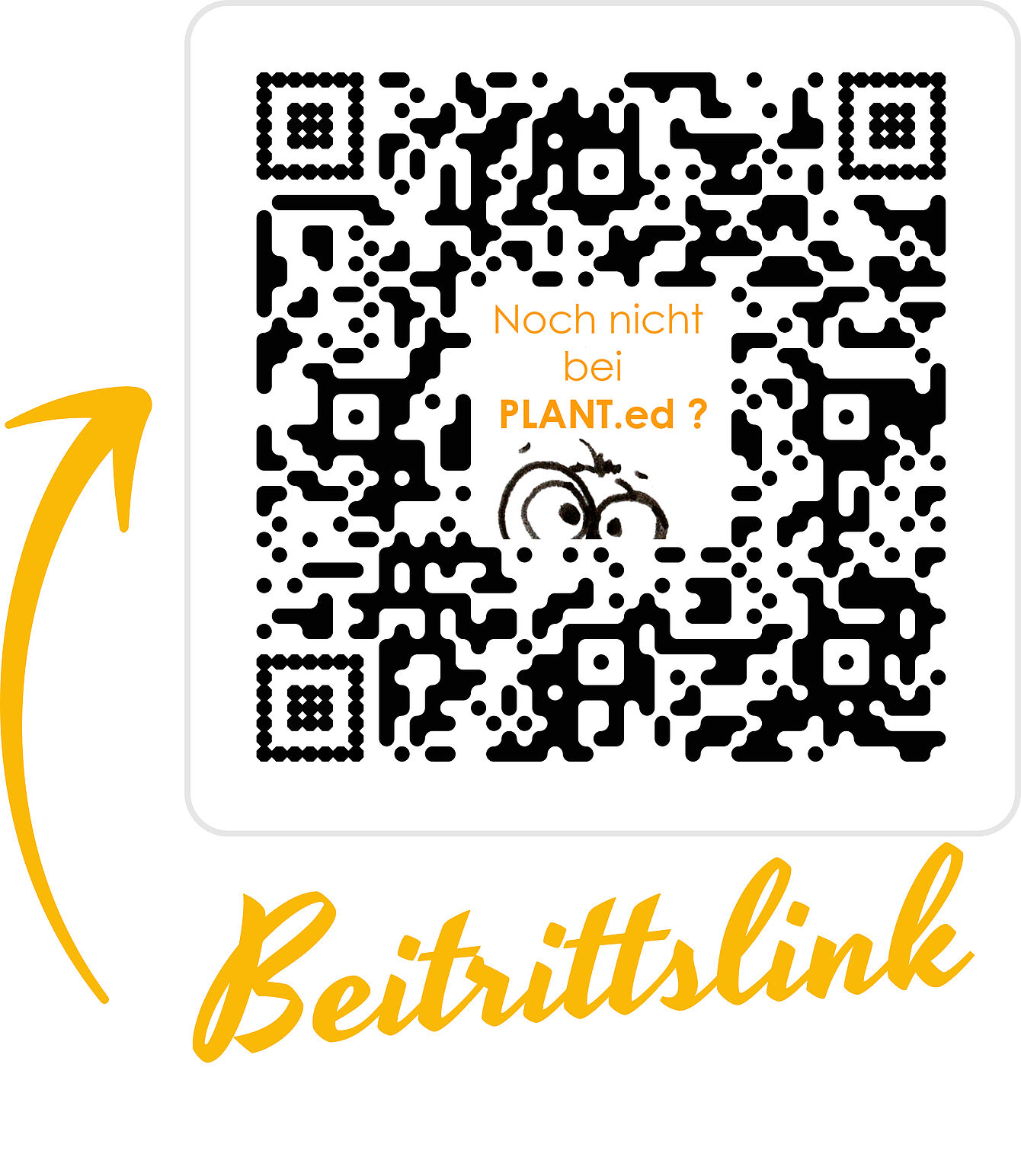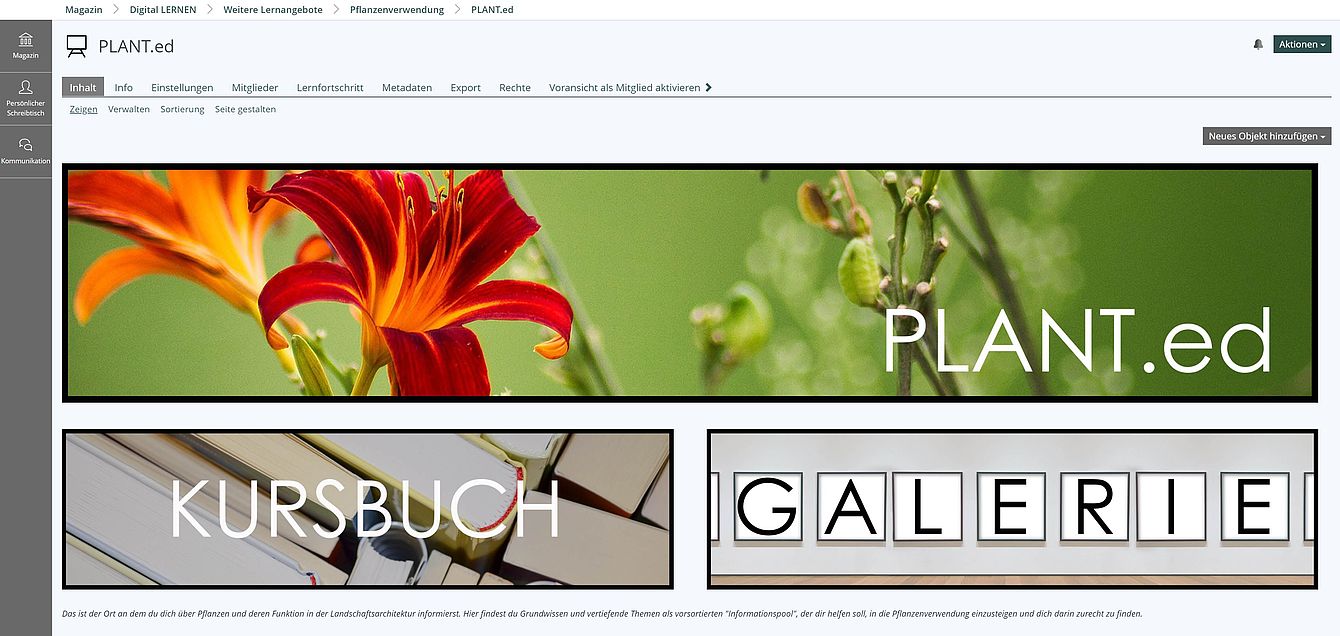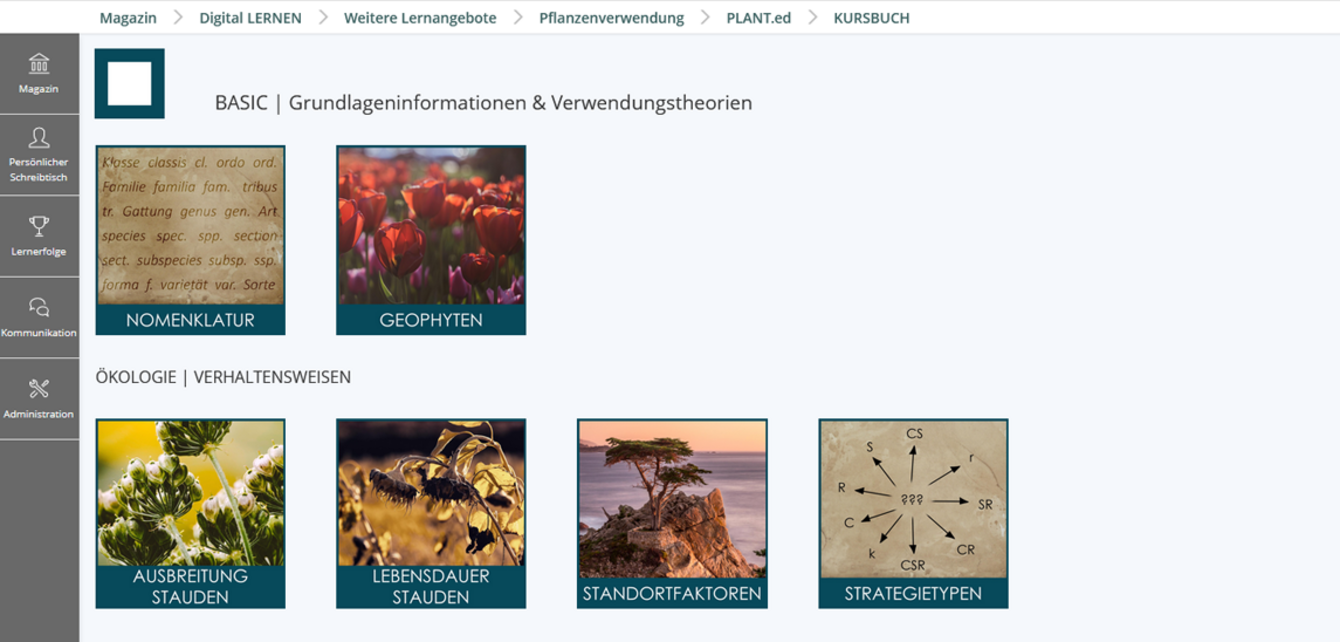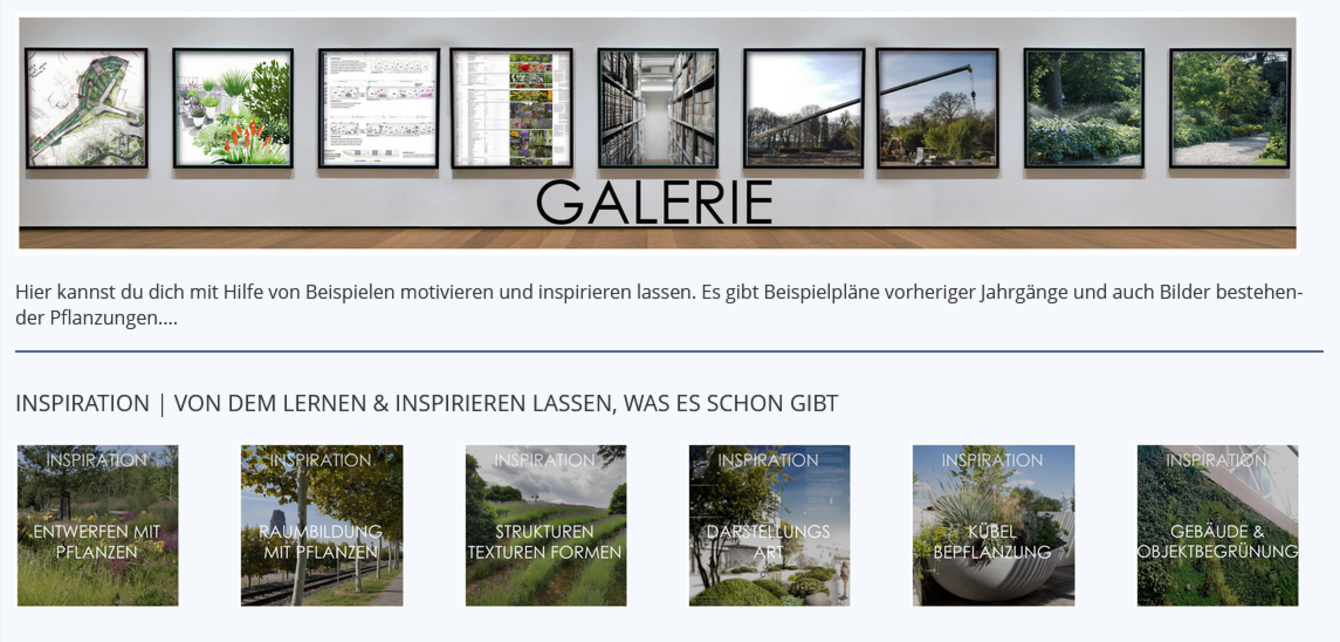PLANT.ed - Plant Use Knowledge Pool
Concept
PLANT.ed is an extensive and interactive online dictionary providing in-depth information on plants and the use of plants.
The tool includes various features:
A COURSE BOOK can be used in a synchronous and asynchronous setting and includes digitalized lectures and scripts that can be accessed by students during their entire time at our university.
How to’s explain the entire process from the first draft to the finished planting scheme. They help students create their own analyses or concepts and provide useful information to prepare for lectures. Additional exercises help to consolidate the content
Another element is the GALLERY, which is primarily intended to promote learning by examples. The Gallery discusses examples in a blog which is structured according to the common planning phases in landscape architecture with a clear focus on presentation. We are planning to enhance this section with audio comments and short podcast discussions.

Implementation in ILIAS
The biggest challenge was to integrate the tool into ILIAS. First, the large number of available objects and forms of presentation had to be reduced to a manageable selection. Another challenge was the high level of detail and the huge amount of text, which can be exhausting, especially in online formats. In addition, the content must always be checked to ensure that it is up to date and, if necessary, supplemented. Therefore, the tool is not static but must be continuously adapted to meet content-related, didactic and technical challenges.
Fields of application
PLANT.ed can be used as an asynchronous module in various courses of the Landscape Architecture program. Students can use this pool of information as a dictionary and to prepare for lectures, presentations and exams. It can be accessed by all members of the university via ILIAS.
Learning objectives
Students will...
- gain a detailed basic understanding of the use of plants
- know the influence of location factors as well as different soils and substrates
- learn to independently search for information in the provided sources
Features
- Reading lists
- Short information sorted by subjects
- Practical examples
- Exercises / questions
Technical implementation
- ILIAS course as homepage
- ILIAS learning modules to consolidate knowledge





